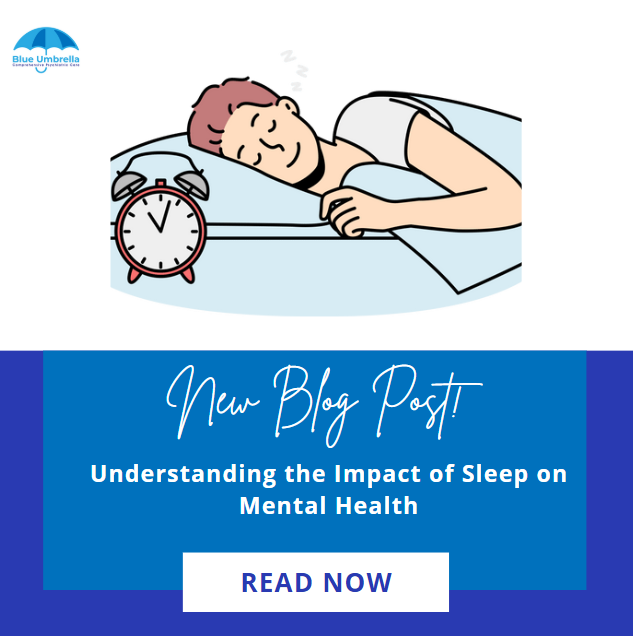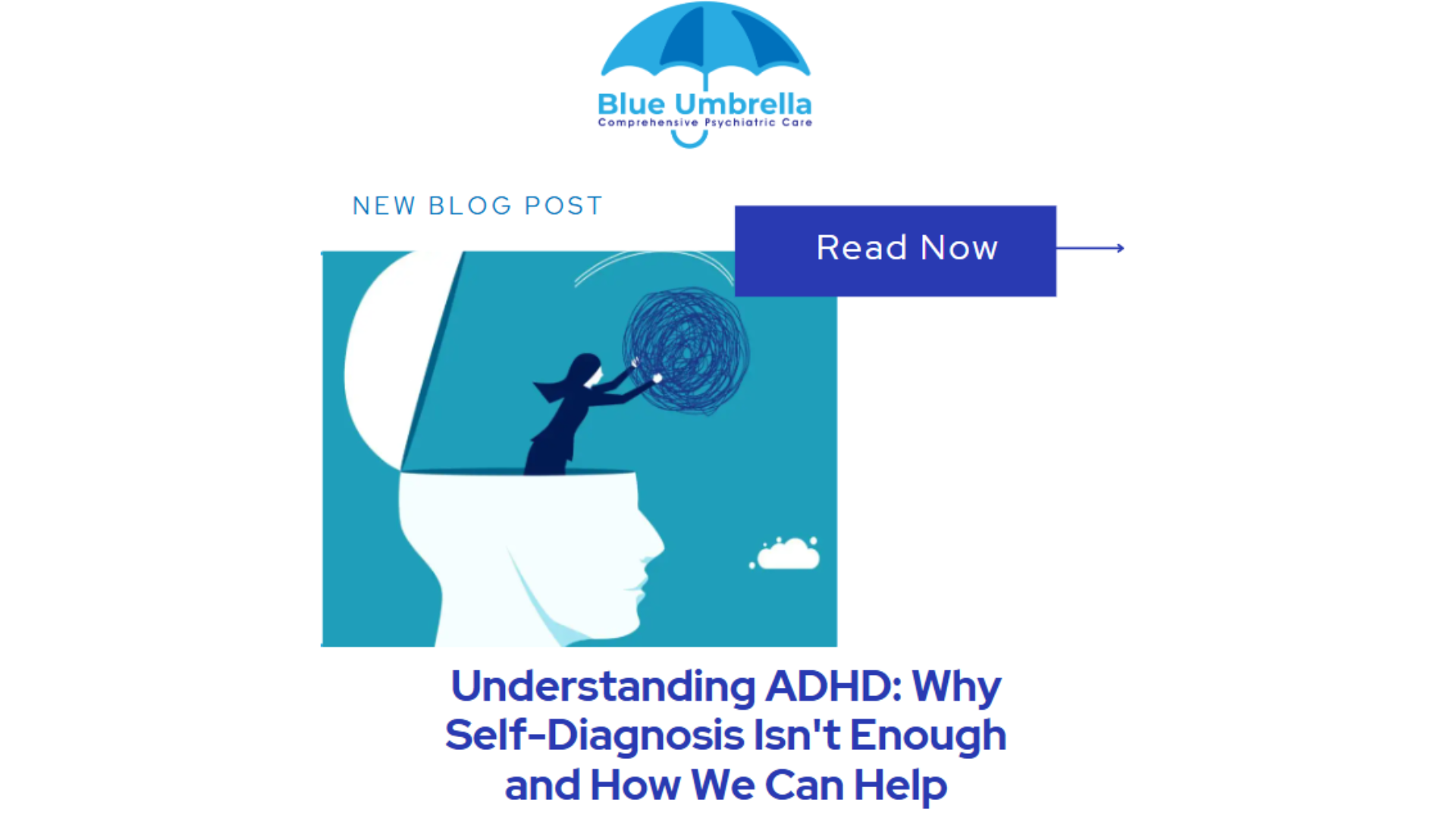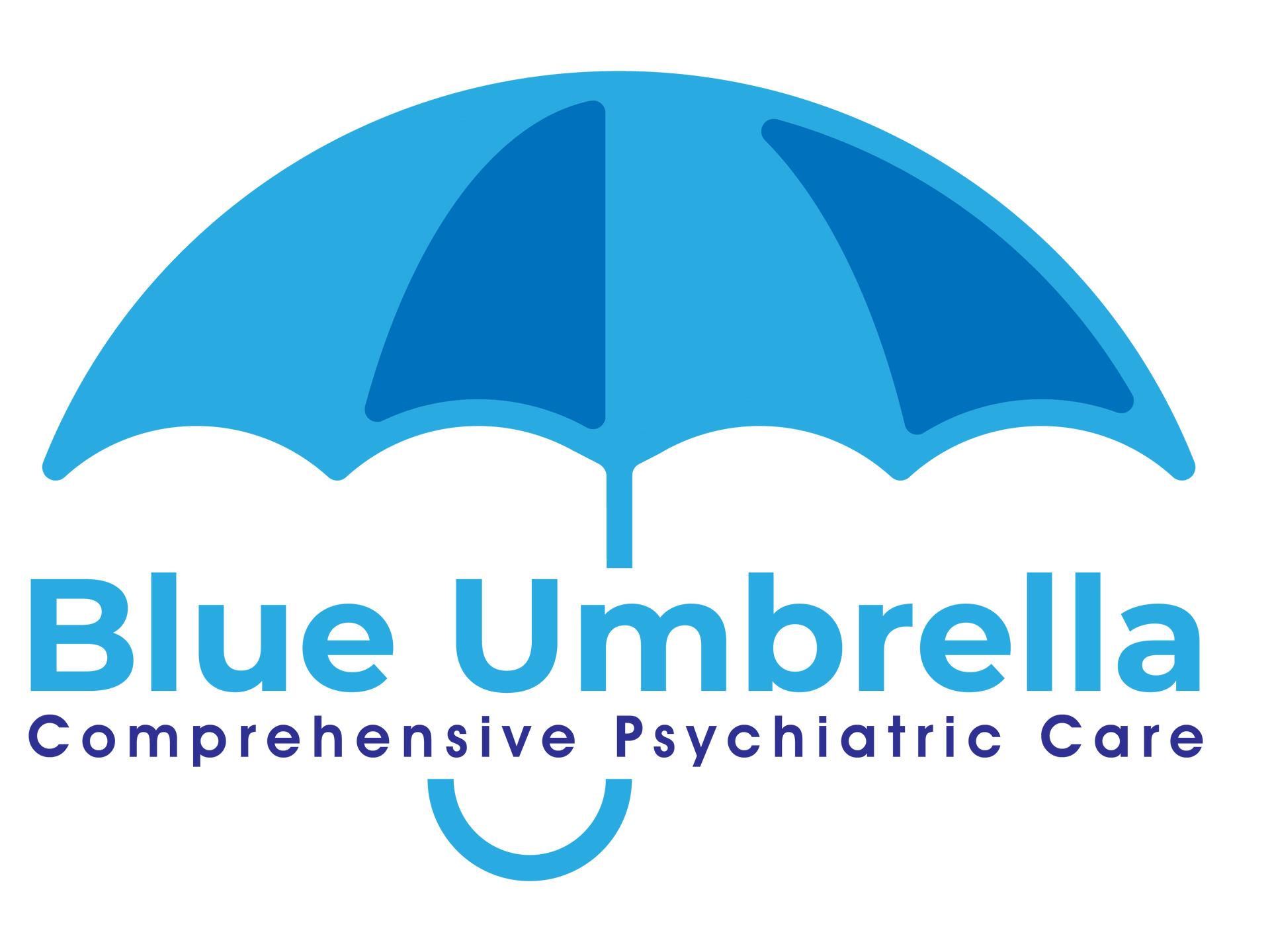
Sleep plays a vital role in maintaining overall health and well-being, especially when it comes to mental health. Adequate sleep helps the brain and body recover, process emotions, and regulate mood. On the other hand, poor sleep or sleep deprivation can have serious consequences on mental health, contributing to issues like depression, anxiety, and stress.
At Blue Umbrella Psychiatry, while we do not treat sleep disorders directly, we understand the deep connection between sleep and mental health. We want to raise awareness about the importance of sleep and how it can impact your emotional and psychological health.
How Sleep Deprivation Affects Mental Health
Research continues to highlight the significant impact that sleep deprivation can have on mental health. Studies show that chronic lack of sleep can increase the risk of developing mental health conditions, such as:
- Depression: Sleep problems are closely linked to symptoms of depression. In fact, insomnia is one of the most common symptoms experienced by people with depression. Lack of sleep can exacerbate feelings of sadness, hopelessness, and fatigue, making it harder for individuals to manage their symptoms.
- Anxiety: Insufficient sleep can heighten anxiety levels. A lack of rest can lead to heightened stress responses, making it more difficult to cope with daily challenges. Over time, this can contribute to the development of anxiety disorders.
- Cognitive Impairment: Sleep is essential for brain function. Without enough quality sleep, cognitive functions like memory, concentration, and decision-making can be compromised. This can lead to increased feelings of irritability and difficulty in managing stress.
- Increased Risk of Other Mental Health Conditions: Research has found that poor sleep is a significant risk factor for developing various mental health disorders, including PTSD and bipolar disorder.
Improving Sleep Hygiene: Tips for Better Sleep
While sleep disorders should be diagnosed and treated by a healthcare professional, everyone can benefit from improving their sleep hygiene. Here are some simple steps to help you get better, more restorative sleep:
- Establish a Regular Sleep Schedule: Go to bed and wake up at the same time every day, even on weekends. This helps regulate your body's internal clock and makes it easier to fall asleep and wake up.
- Create a Calming Bedtime Routine: Engage in relaxing activities before bed, such as reading, deep breathing, or gentle stretching. Avoid stimulating activities like watching TV or using your phone, which can interfere with your ability to fall asleep.
- Limit Caffeine and Alcohol: Both caffeine and alcohol can disrupt sleep. Try to avoid consuming these substances in the hours leading up to bedtime.
- Optimize Your Sleep Environment: Make sure your bedroom is dark, quiet, and cool. Consider using blackout curtains, white noise machines, or fans to create an ideal sleep environment.
- Exercise Regularly: Physical activity during the day can help you fall asleep more easily at night. However, try to avoid vigorous exercise too close to bedtime, as it may keep you awake.
- Manage Stress: Practice relaxation techniques such as mindfulness, meditation, or yoga to reduce stress levels, which can interfere with sleep.
The Connection Between Sleep and Mental Health Treatment
At Blue Umbrella Psychiatry, we believe that sleep is a crucial component of mental health care. For those undergoing treatment for depression, anxiety, or other mental health conditions, improving sleep can play a vital role in supporting the healing process. In some cases, addressing sleep disturbances alongside other treatments can help improve overall outcomes and enhance the effectiveness of therapy and medication.
If you are struggling with mental health concerns and would like guidance on how to improve your sleep habits, we are here to help. Our comprehensive approach to mental health care includes strategies to improve overall well-being, which includes managing sleep as a key aspect of mental health.
If you or a loved one are experiencing mental health challenges and would like to learn more about how our treatments can help, contact Blue Umbrella Psychiatry at 954-341-5215 to schedule a consultation. Together, we can work on creating a personalized treatment plan to support your mental health and well-being.













